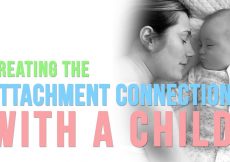Come May, our high-school seniors who’ve applied to college are likely to have lots of feelings. If they got into their dream schools might be thrilled — or they might have a sudden, weird case of buyer’s remorse during which they second-guess everything they’ve ever thought.
If they aren’t excited about their options, they might feel disappointed or anxious. Maybe they’re worried about how they’re going to pay for college; maybe they’re worried about the fact that, having worked so hard to get into college, they now actually have to go; maybe they’re simply relieved or exhausted or, like my son, they’re busy tossing their SAT study guide into a backyard bonfire and laughing like a maniac.

However they feel, though, there’s one thing you should encourage them to do: Thank everyone who helped them get where they’re going. And by everyone, I mean: every person who wrote them a letter of recommendation, including teachers, coaches, bosses, and community members; the guidance counselors or college counselors who shepherded them through the process; family and friends who’ve supported them with advice, help writing essays, or any other assistance navigating the epic application and decision-making process. Also, of course, anybody who is chipping in to finance this upcoming venture.
We want our kids to thank these helpers, not just because it’s polite or good manners to do so (although it is) but also because it will make everyone feel good, especially the kids themselves.
Six ways thanking people makes everyone feel good
1. Thanking people is a great life habit
On the one hand, it means you’ll be remembered fondly by the people who’ve helped you. On the other hand, it allows you to dwell in gratitude for the community that’s got your back. We want our kids to thank people freely and generously as they move through their lives, and this is a great place to start.
2. Gratitude makes you healthier and happier
Hofstra psychologist Jeffrey Froh calls gratitude a “life orientation” that focuses on what you have and how lucky you are. In study after study, grateful kids are more satisfied with their lives, do better in school, are less materialistic, enjoy stronger relationships, and have fewer illnesses, since gratitude seems to lower blood pressure and improve immune function.
3. Expressing gratitude reinforces vital interpersonal skills
Expressing gratitude reinforces skills such as compassion and empathy, as well as important communication skills. Thinking about what someone has done for you forces you to think about what it’s like to be them — which is an excellent way to move through the world.
4. Gratitude amplifies joy and mitigates disappointment
Your happy kid will feel even happier when they take the time to dwell gratefully on their college process; your unhappy kid will likely feel better and more worthy given the opportunity to focus on all the abundance of helpers in their life.
5. Appreciation makes people want to help you again
This is a useful point to communicate to our kids. As they move through their lives, we want them to create as vibrant and robust a community of helpers as they can — which means not simply forgetting about folks once they’ve done what you need them to do.
6. Teachers and school administrators work hard
It’s so important to remind them what they do it for — and that it matters so much.
An email is definitely way better than no thank-you at all, but this is an occasion where I would encourage your child to put some actual notes in the mail. Need a step-by-step? It might look like this:
- Brainstorm a list of people. Who has helped your child get to this point in the process?
- Discuss what to include in each note. Your child should be sure to describe the outcome (where they’re going) in addition to thanking the person for the support they’ve offered.
- Gather resources, such as addresses, stamps, pens, and stationery (Paper Source has a lovely collection of thank-you notes.)
- Make an evening of it. Rather than sending your child off to tackle this project on their own, let them sit in the kitchen or living room where you can offer snacks, encouragement, and any help or guidance they might need. Because, yeah, they’re still kids—and our days of coaching them are numbered.
In the made-for-TV movie version of this GratitudeFest, your child would turn to you, tears sparkling in their eyes, and say, “There’s nobody I’m more grateful for than you!” But in the real world? Our support is their birthright. It’s the very air they breathe.
We are so lucky to have these kids here to leak out of our lives, like water through cupped hands. To break us with their leaving. And to flounder and soar in a way that makes us whole — even when we miss them beyond what our overflowing hearts can take. And for all of that, yes, we are so grateful.
More Great Reading:
The “Lovestorm” Way to Write a Unique and Powerful Common App Essay
Catherine Newman is the author of the skill-building books How to Be a Person and What Can I Say?



































